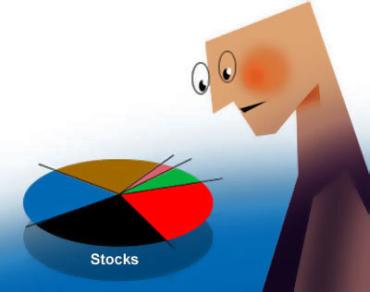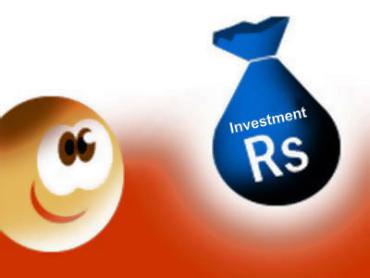
Portfolio management services popularly known as PMS are specialised investment products for lump sum investments. The portfolio manager invests the money in shares and other securities and manages the portfolio on behalf of the client.
One can invest fresh money in PMS and the portfolio manager will construct a portfolio by deploying that money. Also one can transfer his existing share portfolio to the PMS provider. In that case, the portfolio manager will revamp the portfolio in line with her/his investment philosophy and strategy.
Once the PMS account is opened, the client is given a web access to her/his portfolio. The client can look at where the portfolio manager is investing her/his money. Also one will be able to generate reports like investment summary, portfolio statement, portfolio transaction list, performance analysis and quarterly capital gain report.
As a result, PMS relieves investors from all the administrative hassles of investments.
PMS vs direct stock market investment
One can directly invest in share market. Then what is the advantage of investing in the share market through a PMS product? Investing in stock market demands knowledge, time, right mindset, and continuous monitoring. It is difficult for an individual investor to meet all these demands. But a PMS product meets these demands easily. An experienced professional will manage the PMS. It saves the time and effort of the individual investors.
Hence it is advisable to outsource the stock market investment to a sound PMS operator instead of managing it on our own.
PMS vs mutual funds
Mutual fund is also a good investment vehicle. It should also form part of your total equity investment. But mutual funds are mass products. So they will be conservative by nature. As per SEBI regulation, there are some investment restrictions for mutual funds. There is a maximum cap on the percentage of amount invested in an individual stock. Also there is some maximum limit on the exposure in a particular sector.
Once the fund manager reaches the maximum limit, s/he is forced to invest in some other stock or some other sector. That is why we see a large number of stocks in a mutual fund portfolio whereas a PMS will invest in 15 to 20 stocks. This concentration makes it more attractive and aggressive. Managing a Rs 25 lakh PMS portfolio will be more flexible when compared to managing Rs 2,000 crore mutual fund portfolio.
PMS schemes relatively have more flexibility to move in and out of cash as and when required depending on the market outlook.
Basically the conservative portion of your equity investment can go into mutual funds. The aggressive portion can go into PMS.
Click NEXT to read how to choose best portfolio management schemes.
K Ramalingam, an MBA (Finance) and certified financial planner, is founder & director of Holistic Investment Planners (P) Ltd. He can be reached at ramalingam_007@rediffmail.com

There are so many PMS providers in the industry. So it is really very difficult to choose a good PMS provider. Here are some points to be considered before choosing a PMS product.
1) Yardstick for performance
One should not just go by the past performance alone. Making an analysis on various PMS schemes with their past performance along with the risk adjusted return and the consistency of performance will be useful in selecting the best PMS product.
2) Minimum investment criteria
Avoid PMS schemes where the minimum investment is less than Rs 25 lakh. Even there are PMS operators who keep minimum investment for their schemes as low as Rs 5 lakh. But these kinds of PMS operators will have more number of PMS accounts. When the quantity (the number of PMS accounts) goes up the quality (the performance) may relatively come down. Therefore it is better to choose a PMS product where the minimum investment is Rs 25 lakh or more. So that our PMS account will be directly managed by the top-level portfolio manager and not managed by the juniors and analysts.
If you are planning to invest less than Rs 25 lakh, then mutual funds would be an ideal product for you.
3) Conflict of interest
Some broking companies as well as investment management companies have run PMS schemes. There is a conflict of interest in PMS schemes run by stock broking companies.
The main business of a stock broking company is to earn commission income by facilitating the stock market transactions. PMS is an additional business for them. It is not their core business. Hence there may not be enough focus on the PMS business.
Also they may indulge in doing undue and unnecessary churning of the clients' portfolio to earn more commission income. This will cause additional expenses and short-term capital gain tax to the client.
The core business of investment management companies is managing the investments of their clients to earn management fees. So, with the PMS schemes run by investment management companies, there is no conflict of interest or vested interest.
Therefore it is always advisable to choose a PMS scheme run by investment management companies.
4) Role of professional financial planners
A professional financial planner will study and analyse the PMS schemes run by various broking companies as well as investment management companies. If we approach them, they will guide us in choosing the right PMS schemes depending upon our requirements and other factors. Also a professional financial planner will continuously monitor the performance of various PMS schemes and advice the client on a regular basis on the performance of the PMS scheme where the client has invested vis-a-vis the other PMS schemes.
After a certain period, if necessary s/he may advice you to move from one PMS operator to the other.
Click NEXT to read if PMS is for YOU.

The companies provide eSOPs to its employees based on their service. Most of the employees are of the opinion of keeping the eSOPs as it is forever because it is their company shares. But logically it is too riskier to invest in a company that you work for. That is because your employment income as well as investment income will depend on the performance of a single company.
So it is not advisable to keep your investments in a company where you actually work. So it is at all times advisable to transfer your eSOPs to a PMS scheme. They will revamp it to construct a diversified portfolio.
PMS is an aggressive investment product for these investors: